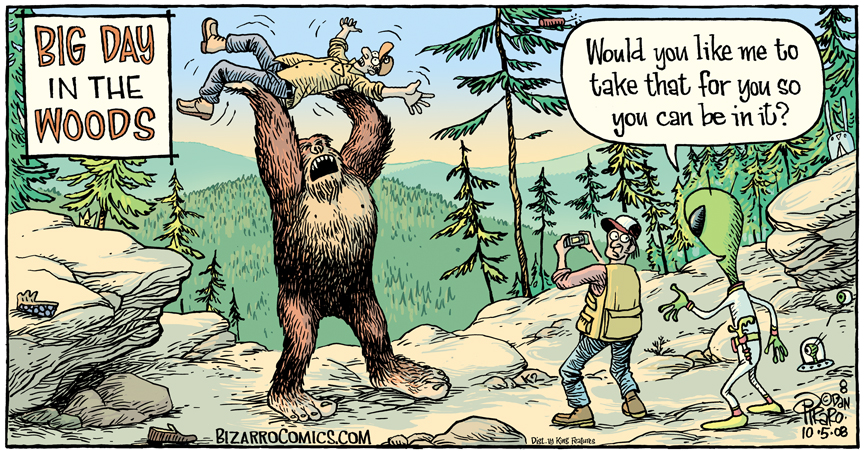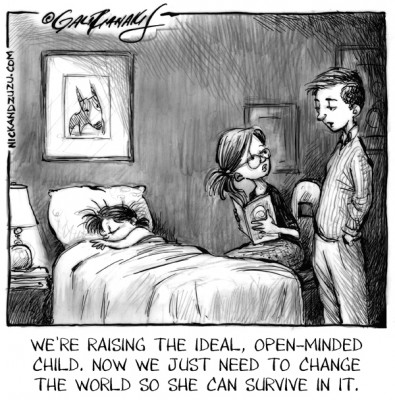
I have a rule that I like to follow at family gatherings: Stay away from woo woo topics – the paranormal, psychics, alternative healing, etc. To have to explain to people why I prefer to keep an open mind on these issues is just frustrating and exhausting. Frankly, I’d rather endure my brothers’ flatulence (I am going to regret writing this because I know they’re reading this) than their eye rolling and mockery when discussing any topic that their logical mind simply cannot grasp.
“This is you,” I’ve said to them several times. I then outline the shape of an imaginary square with my fingers, and put an imaginary dot in the middle.
“This is me.” I make wide arm gestures outlining the outside of the box. “Enough said.”
Having an open mind is more than just picking something different on the menu, wearing colors other than black, or shaking up your routine by opting for a Triple, Venti, Half Sweet, Non-Fat, Caramel Macchiato instead of a Triple, Venti, Soy, No Foam Latte. Open-mindedness is a willingness to acknowledge new ideas, to try new things, and to accept change. And here’s why it’s so important:
I analyzed the data we collected for our Big Five Personality Test and compared a sample of open-minded and close-minded people. The impact of an open mind is quite far-reaching.
The obvious benefits of an open mind:
- 89% of open-minded people enjoy coming up with new ideas and theories (compared to 13% of close-minded people).
- 83% of open-minded people are good at thinking outside the box (compared to 15% of close-minded people).
- 87% of open-minded people consider it a priority to expand their intellectual horizons (compared to 20% of close-minded people).
- 60% of open-minded people thrive on change and purposely seek it out (compared to 11% of close-minded people).
- In an argument, 78% of open-minded people can understand the other person’s point of view; 76% will strive to work out a win-win solution (compared to 47% and 38% respectively).
The less obvious benefits of an open mind:
- 77% of open-minded people freely offer their time, skills, and knowledge to others (compared to 25% of close-minded people).
- 86% of open-minded people have a strong drive to succeed (compared to 36% of close-minded people).
- 66% of open-minded people exceed the expectations that others set for them (compared to 20% of close-minded people).
- 69% of open-minded people go out of their way to better themselves (compared to 27% of close-minded people).
- 71% of open-minded people perform well under pressure (compared to 32% of close-minded people).
- 86% of open-minded people are easy to talk to; 68% consider themselves easy to get to know (compared to 54% and 40% respectively).
- 68% of open-minded people will contemplate the pros and cons of a decision before taking action (compared to 37% of close-minded people).
- 93% of open-minded people get a sense of satisfaction from helping others (compared to 63% of close-minded people).
- 59% of open-minded people have good self-control when they’re angry (compared to 34% of close-minded people).
- 83% of open-minded people love and accept themselves (compared to 45% of close-minded people).
While perusing the comments on an article discussing Caitlyn Jenner’s transition, one commenter questioned why he was being chastised by supporters for being against transgenderism – why he was required to adopt an “accept everyone” attitude. Being open-minded isn’t about changing your opinion: It’s about recognizing that it’s just that – an opinion. It’s about accepting global changes, whether you agree with them or not. Most importantly, it’s about allowing people to practice their free will, barring harm to others.
Insightfully yours,
Queen D


